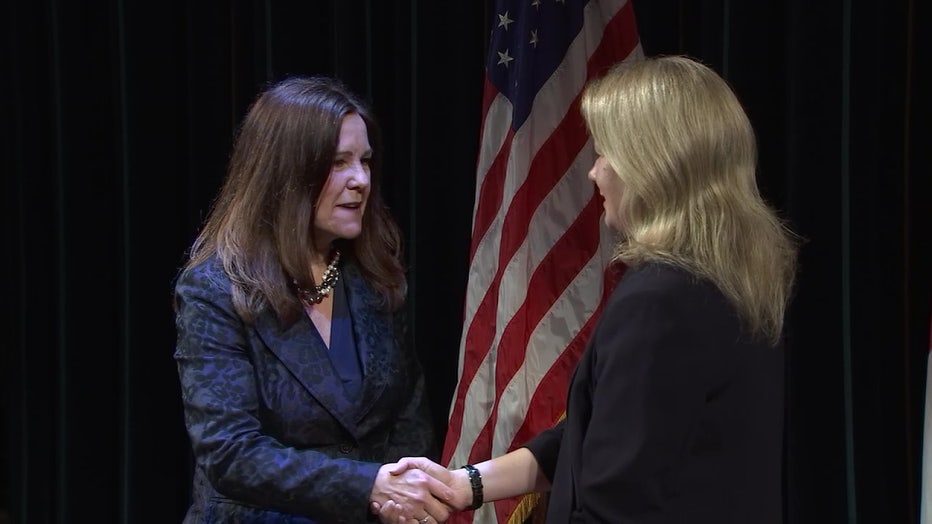Karen Pence, in Tampa, highlights problem of unemployment among military spouses
TAMPA, Fla. - It’s a mission she’s taken on proudly. But ‘second lady’ Karen Pence will be the first to tell you she’s not a military spouse.
“Although I do know what it’s like to move because of your husband’s job,” she said.
The wife of the congressman-turned-governor-turned-vice-president of the United States said she’s spent the last few years holding listening sessions with military spouses worldwide.
“And we met with spouses and said, tell me one thing. I can’t do everything. I wish I could, but tell me one thing, if I could change it, that would really, really help your quality of life,” she continued.
The answer, across the board, was unemployment.
Karen Pence spoke before a crowd of military spouses in downtown Tampa today about how to change a problem, she says, seems to persist.

“These spouses being happy contributes to our military readiness,” she explained. “But you know, military spouses, are well-educated, flexible, hard-working, reliable and loyal. They are the kind of workers you want in the workforce.”
Stacy Miller, whose husband Jody served in the U.S. Army for 27 years, says she struggled to find jobs.
“Every time we moved, I had to either quit a job, or wasn’t employed and had to move to the next place,” said Miller, who is a certified financial planner with an MBA. “I got my MBA over the course of two back-to-back short-term duty assignments, knowing that we would move again before I ever found a job.”
According to a government report, military spouses face a 24-percent unemployment rate, much higher than the general population. The high rate is driven in large part by the nature of the mobile life, because many also face new licensure requirements for their profession.
Many times, the process to acquire a new license is time-consuming and expensive.
Pence says several states have proposed occupational licensing reform programs. In Tampa, non-profit “Hiring our Heroes” links spouses with networking opportunities.
Miller says it’s a mission that needs to be taken on from the top down.
“It’s all of those pieces -- federal, state and local level,” she added. “And connect all of those pieces with the spouses. It’s not your patriotic duty to hire a military spouse; it’s really just good business sense.”


